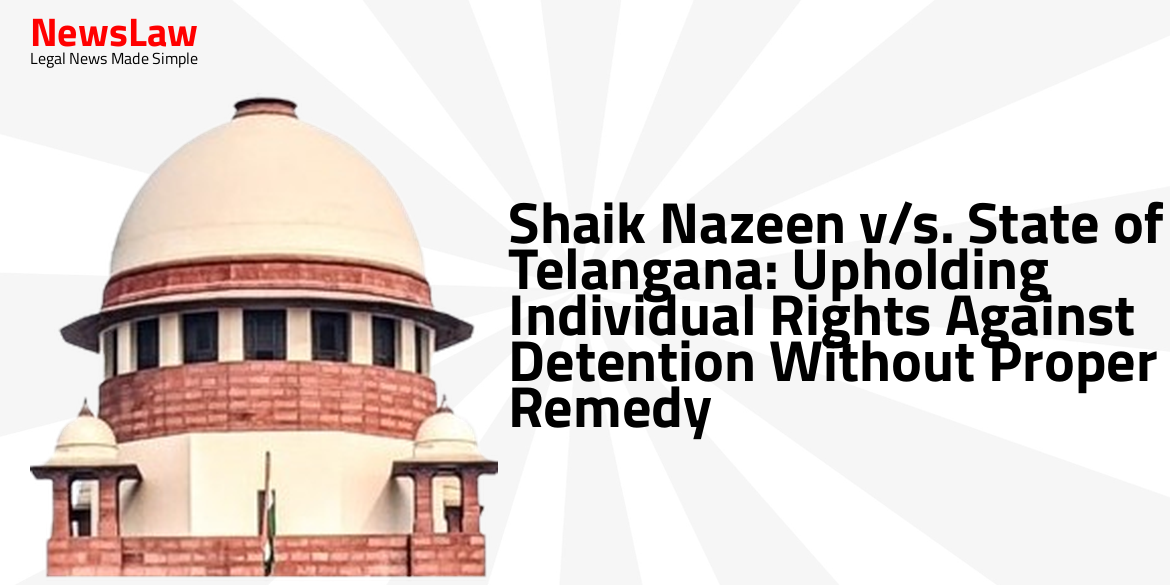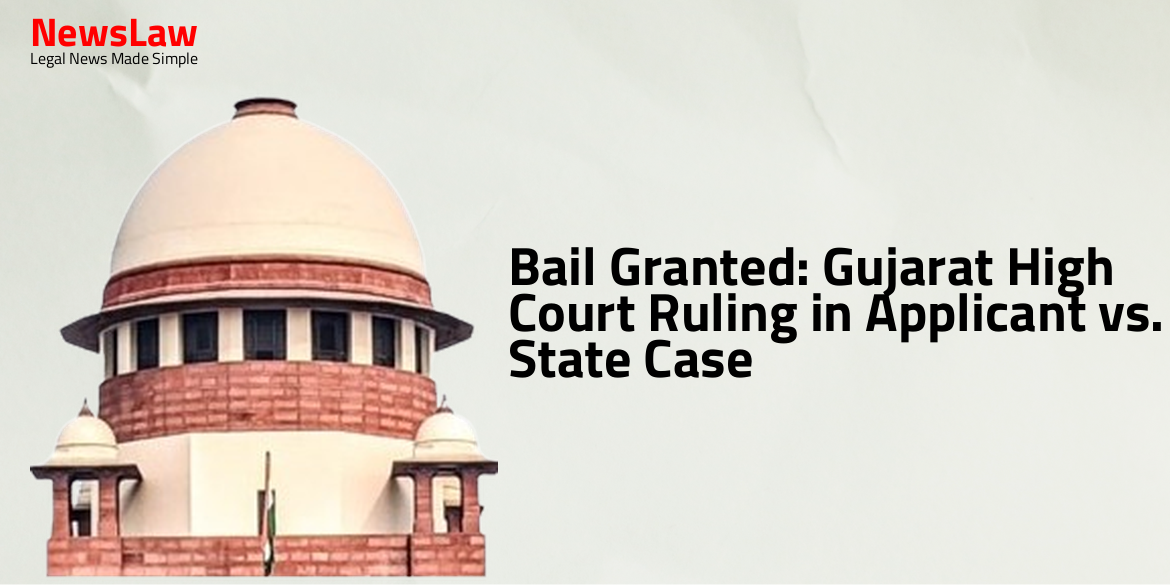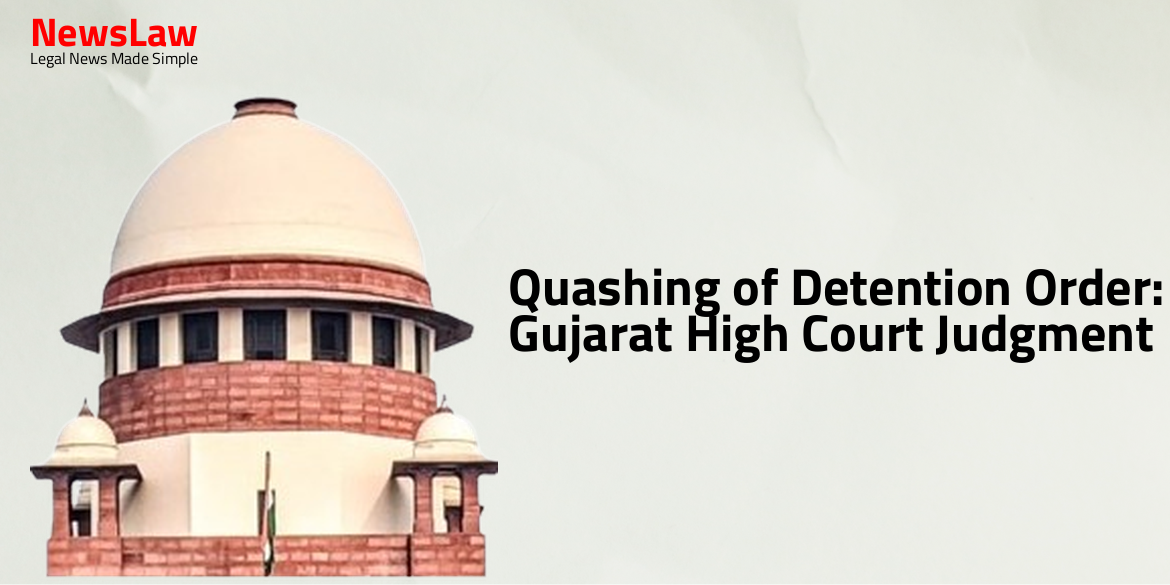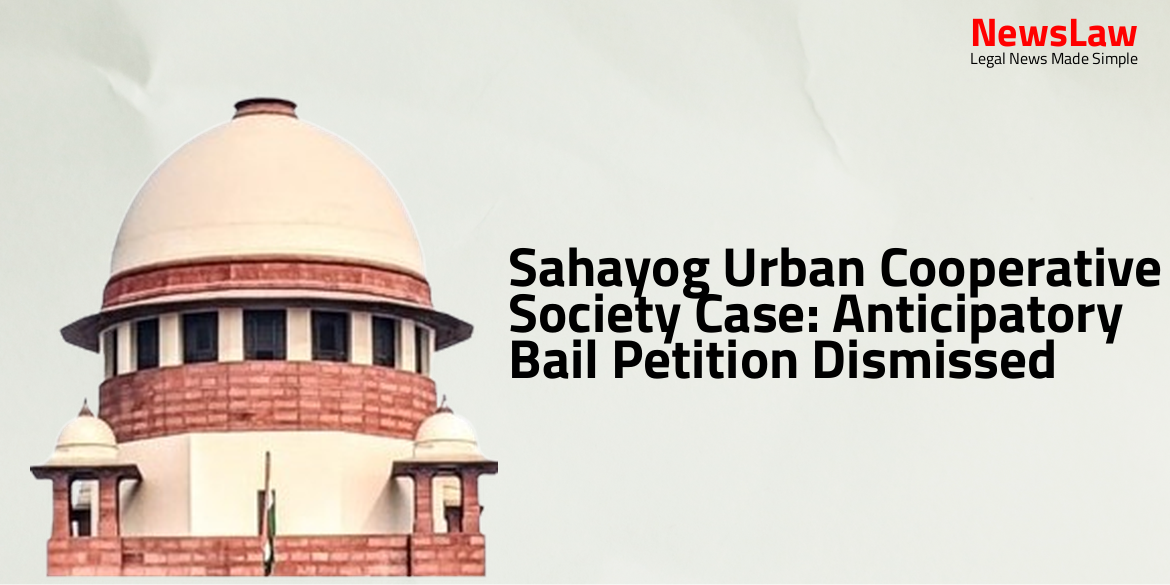In the recent judgment by the Hon’ble Supreme Court in the case of Shaik Nazeen v/s. State of Telangana, a crucial observation was made regarding the balance between individual rights and preventive detention laws. The court emphasized the importance of opting for less drastic remedies, such as cancellation of bail, before resorting to preventive detention. This case sets a significant precedent in upholding individual rights and ensuring that legal options are explored thoroughly before imposing detentions without proper remedy.
Arguments
- The petitioner’s alleged illegal activities are argued to only cause disturbance to law and order, not breach of public order.
- It is suggested that cancellation of bail could have been a less drastic remedy instead of passing the order of detention.
- The detaining authority is criticized for not opting for the lesser drastic remedy of cancellation of bail before resorting to detention.
- The detaining authority’s subjective satisfaction is considered vitiated as the order of detention was passed immediately after bail was granted.
- The detaining authority has failed to prove that the alleged boot-legging activities of the detenue would affect the maintenance of public order.
- The mere registration of cases under the Prohibition Act against the detenue does not inherently impact public order according to the Court’s opinion.
Analysis
- In the recent decision of the Hon’ble Supreme Court in the case of Shaik Nazeen v/s. State of Telangana, a observation was made that seeking shelter under preventive detention law is not the proper remedy if other legal options are available.
- The state should opt for cancellation of bail or file an appeal to the Higher Court if the detenu is a menace to society as alleged.
- A line of demarcation should be drawn between serious disorder affecting the community and minor breaches of peace primarily injuring specific individuals.
- Mere disturbance of law and order is not sufficient for preventive detention, it should be a disturbance affecting public order.
- Reference to the case of Pushker Mukherjee v/s. State of West Bengal highlights the distinction between ‘law and order’ and ‘public order’.
- Acts like quarrels and fights between individuals do not amount to public disorder but are handled under ordinary criminal law.
- For an act to be considered as affecting public order, it must impact the community or the public at large.
- The detenue was released from jail on 01.11.2023
- The impugned order of detention was passed on 02.11.2023, immediately after the detenue’s release
- The subjective satisfaction required for passing the order of detention does not appear to have been arrived at by the detaining authority
- The lesser drastic remedy of cancellation of bail was available but not resorted to
- The order of detention was passed without considering cancellation of bail
- The decision to pass the order of detention was made straightaway
Decision
- The petition succeeds and is allowed.
- The impugned order of detention is found to be vitiated.
- The rule is made absolute, and the detenue is to be set at liberty forthwith, unless required in connection with any other case.
- Direct service is permitted.
- The order of detention dated 02.11.2023 passed by the respondent authority is quashed and set aside.
Case Title: RONAK ASHWINBHAI MAKWANA THROUGH HIS WIFE SANGITA RONAKBHAI MAKWANA Vs. COMMISSIONER OF POLICE
Case Number: R/SCA/21139/2023



